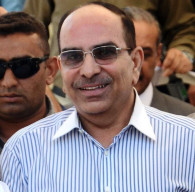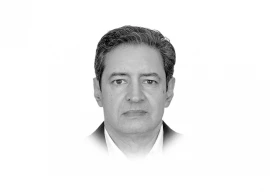1722164607-0/BeFunky-collage]-(84)1722164607-0.jpg)
Outgoing President Joe Biden said Thursday he had commuted the sentences of nearly 1,500 people and pardoned 39 others, in what the White House called the largest single-day act of clemency in US history.
The move comes just over a week after the 82-year-old Biden pardoned his troubled son Hunter, something he had previously promised not to do, prompting anger from both sides of the political divide.
"America was built on the promise of possibility and second chances," Biden said in a statement announcing the action. "As President, I have the great privilege of extending mercy to people who have demonstrated remorse and rehabilitation."
Democrat Biden -- who hands over power to Republican Donald Trump on January 20 -- is following in the footsteps of many lame-duck presidents who have issued a flurry of acts of clemency in their final days in the Oval Office.
All of the 1,499 people -- "the most ever in a single day" -- whose sentences were commuted were placed on home confinement during the Covid-19 pandemic, the White House said.
Biden said they had all "successfully reintegrated into their families and communities and have shown that they deserve a second chance."
The 39 pardons were all for what the White House called a "non-violent offense" or a "non-violent drug offense."
Those getting relief from the president on Thursday included a "decorated military veteran and pilot who spends much of his time helping his fellow church members."
A nurse "who has led emergency response for several natural disasters" and an addiction counsellor "who volunteers his time" were also singled out for relief.
"I will take more steps in the weeks ahead," Biden said.
But Biden has already sparked outrage among both Republican rivals and Democratic allies alike with the pardon of his son Hunter, 54, on December 1.
Hunter Biden pleaded guilty in a tax evasion trial in September and was facing up to 17 years in prison, and had separately been convicted of federal gun charges, for which he was facing 25 years in prison.
When pardoning him, Biden said that Hunter had been "singled out" because of his surname and that "raw politics" had infected the process of justice -- a nod to his Republican foes.
Biden has meanwhile reportedly been debating whether to issue blanket pardons for some allies and former officials amid fears they could be targeted for what Trump has previously called "retribution."
"I'm not going to get into the President's thinking," White House Press Secretary Karine Jean-Pierre told a briefing when asked about the possibility of such preemptive pardons.
"He's going to have conversations with his team, he's going to review clemency petitions, he's going to review options on the table, and so that's where I'm going to leave it."
The spokeswoman also refused to comment on calls for clemency for people on the US federal death row.
Biden's controversial pardon of his son followed in the footsteps of his predecessors, who also gave reprieves on their way out the door to family and well-connected allies.
Bill Clinton, for example, granted a pardon on his last day in office to his half-brother Roger, who had served time in prison on drug charges.
Trump pardoned his son-in-law's wealthy father, Charles Kushner -- whom he has now nominated as US ambassador to France.
Trump meanwhile has vowed to pardon at least some if not all of the rioters jailed for storming the US Capitol on January 6, 2021, to protest his defeat by Biden in the 2020 election.
In an interview with Time magazine marking the second time he has received its "Person of the Year" award, Trump said he would start "in the first hour that I get into office."
"A vast majority of them should not be in jail, and they've suffered gravely," he said, while adding that he would look at each case individually.


1736750329-0/Untitled-design-(37)1736750329-0-165x106.webp)

1736748956-0/Untitled-design-(35)1736748956-0-165x106.webp)


1736746138-0/sidra--(76)1736746138-0-270x192.webp)
















COMMENTS
Comments are moderated and generally will be posted if they are on-topic and not abusive.
For more information, please see our Comments FAQ